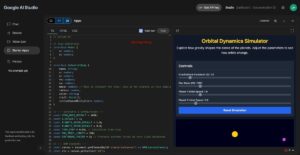Meta’s AI Collecting User Photos and Posts: Europeans Can Opt Out, Australians Cannot

Meta’s AI Training Practices: A Global Concern
Introduction to the Issue
Recent discussions have emerged regarding how Meta, the parent company of Facebook and Instagram, utilizes the public posts and photos of its users for training artificial intelligence. This practice has drawn scrutiny, especially as it pertains to user privacy and consent across different regions.
European vs. Australian User Rights
European Users’ Opt-Out Option
As of July, Meta paused its AI product launch in Europe due to legal constraints imposed by the General Data Protection Regulation (GDPR). This regulation prioritizes user privacy and mandates that companies like Meta secure user consent before using their data. Consequently, European users have been granted the option to opt out of having their public posts used for AI training. According to this legislation, any data collection must be accompanied by user consent, offering Europeans a degree of control over their digital footprint.
Lack of Similar Options for Australians
Conversely, during a parliamentary inquiry in Australia, it was revealed that Australian users currently lack a similar opt-out option. Senator Tony Sheldon, who chairs the inquiry focused on AI use in Australia, raised critical questions about why this disparity exists. He expressed his desire to have the same rights as European users, stating, “I’d like to opt out in Australia … and I’d like to have the options similar to Europe, for all Australians.”
Meta’s Response and Clarification
Meta’s Director of Privacy Policy, Melinda Claybaugh, clarified that the company only utilizes public posts from users over 18 years old. This means that only users who make their posts public, rather than sharing them privately with friends, are subject to data scraping. However, she emphasized that the opt-out provision in Europe was initiated due to specific legal frameworks and did not confirm if any similar solutions would be offered to Australians in the future.
The Implications for Australian Users
Historical Context of Data Scraping
Greens Senator David Shoebridge highlighted a significant concern: Australian users need to retroactively change all of their past public posts to private if they wish to protect their content from further scraping. Since 2007, Meta has been collecting data from users unless they actively opted to make their posts private. This presents a dilemma for many Australian users who may not have been aware of these practices when they signed up for the platforms.
The Reality of Data Usage
The inquiry revealed that unless users have explicitly set their accounts to private, all public posts and photos since 2007 are available for scraping by Meta. Shoebridge noted, "Unless you consciously had set those posts to private… Meta has just decided you will scrape all of the photos and all of the text from every public post." This indicates a significant gap in user awareness regarding how their data might be used.
User Perspectives on Privacy and Data Rights
Senator Sheldon voiced a broader concern shared by many users around the globe: a sense of frustration with how large tech companies operate with minimal oversight. He highlighted that countless Australians have not consented to using their personal images and videos for AI training. Following his assertions, he emphasized, “I do think the people around the world are sick of tech companies… doing whatever they want, completely ignoring laws and rights as they go.”
The Call for Government Action
The discussion also included a call for more robust regulations that hold tech giants accountable. Lawmakers and privacy advocates argue for urgent measures to ensure that platforms like Meta cannot exploit personal data without explicit user consent. As countries continue to grapple with how best to regulate technology in the face of rapid advancements in AI, the dialogue around user rights and privacy can no longer be sidelined.
Summary of Current Standing
In summary, while European users enjoy specific protections regarding their data, Australian users find themselves in a different position, lacking similar options for opting out of data scraping practices. As the conversation around user privacy and consent grows, it becomes increasingly critical for governments worldwide to address these disparities and set clear regulations to protect their citizens’ digital rights.






